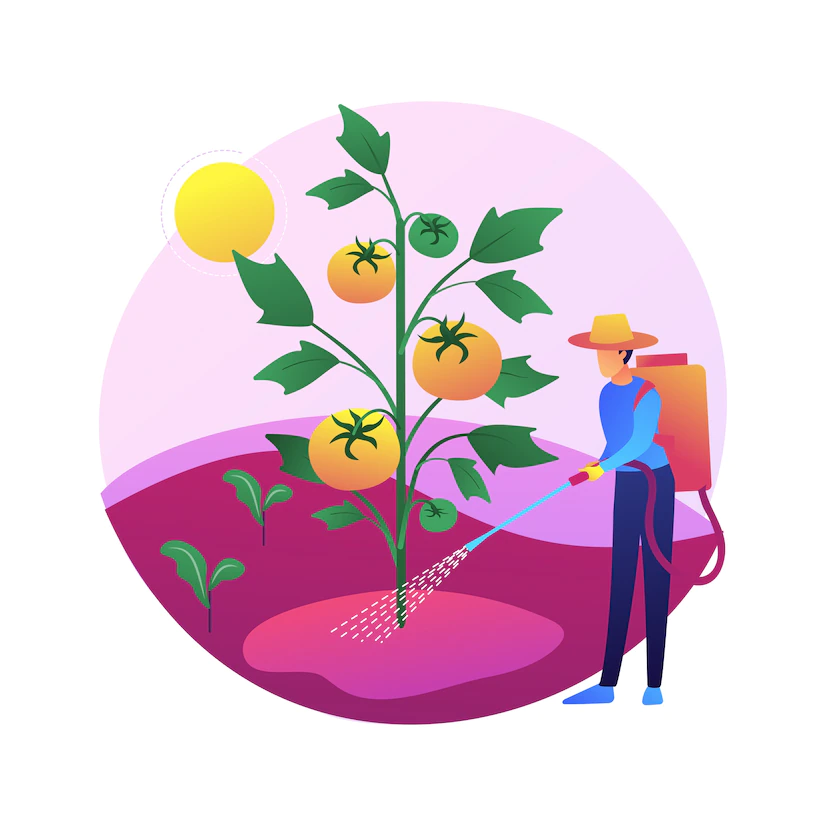Scientific research has proven the importance of reducing or eliminating the use of pesticides in agricultural systems. However, the claim “pesticide-free” you see on the label of food products is frequently unreliable as this claim is subject to little regulatory supervision or standards at present. The Food and Drug Administration (FDA) interprets the claim “pesticide-free” to mean that no pesticide residues are present in the food product. The agency expects that no pesticides were applied at any product production stage, including planting, processing, and storage. However, the FDA does not require food testing to verify the claim’s validity. The claim that a food is “pesticide-free” may be deceptive if residue testing is not done. Even when producers do not apply pesticides, crops can be contaminated by pesticides that drift from nearby farms or are present in the environment. Instead of the “pesticide-free” label, look for the “organic” label. This label is regulated and denotes that the crops were never treated with synthetic pesticides.
The term “pesticide” generally refers to substances used to manage pest-like living things. Insecticides, herbicides, and fungicides are all examples of pesticides. The agricultural industry uses nearly 900 million pounds of pesticides, including the active components of herbicides, insecticides, fungicides, fumigants, sulfur, and oil. When they think of pesticides being sprayed on crops, people generally envision an airplane hovering over a farm field or a vehicle moving through an orchard, spraying pesticides on the crops as they grow. However, many pesticides are used on crops, soil, and seeds both before and during the growing season. One-third to half of the residues on various fruits and vegetables come from pesticides sprayed during storage rather than on the fields or orchards. While some insecticides used in storage are directed toward insects, others are employed to extend the product’s shelf life. For instance, fungicide is applied to various fruits, including oranges and peaches, to prevent mold growth. Vegetables can also be treated with chemicals after harvest to stop sprouting. When it comes to seeds, fungicides can be used to prevent mold during storage, or the seeds can be treated with pesticides individually as a preventative measure. In order to rid the fields of underground pests, fumigants, or insecticides in the form of gas, are frequently sprayed into the soil before planting.
Why are pesticides harmful?
Pest problems cannot be solved permanently with pesticides. Living things will adapt in reaction to dangers to the existence of their species, which is a biological fact. Because of this, weeds, insects, and other pests will eventually become resistant to pesticides meant to kill them (often within ten years of their introduction). As a result, pesticides are only effective temporarily until the pests develop resistance to them. Chemical manufacturers are continuously forced to create new pesticides that can be hazardous to the environment and humans in various ways. Inevitably, non-targeted plants, insects, and other living things will be affected by pesticides because they are made to be hazardous to living things. An estimated 72 million wild birds die every year from exposure to pesticides used on farms.

Doctors diagnose between 10,000 and 20,000 farmers and farmworkers with pesticide poisoning each year. Health professionals in the medical and public sectors have long expressed worry about pesticides’ inherent toxicity. Still, it will take extensive research over time to fully comprehend and catalog the breadth of harmful consequences on unintended living things, such as people. There are over 40 pesticides registered by the Environmental Protection Agency (EPA) on the market that are categorized as known, probable, or possibly carcinogenic to humans. Non-Hodgkin lymphoma, prostate cancer, Parkinson’s disease, lung cancer, bronchitis, and asthma are among the chronic conditions that the EPA has identified as having a well-established link to exposure to agricultural pesticides. In addition, Ovarian cancer, stomach cancer, hypothyroidism, changes in memory and attention, and an increase in respiratory diseases have all been related to high pesticide exposure among farmers. Pesticides have been associated with several long-term health issues in children, including cancer, asthma, congenital disabilities, and neurodevelopmental or behavioral problems. According to the national Centers for Disease Control and Prevention (CDC), most Americans have 29 distinct metabolites in their bodies. These metabolites are the parts of pesticides that stay in the environment or body after they are broken down.
Pesticide groups and their harmful effects
One of the most popular pesticides in American agriculture is glyphosate. It goes under the trade name RoundUp (TM). Glyphosate is categorized by the International Agency for Research on Cancer (IARC) as a potential human carcinogen. According to a recent animal study, glyphosate can cause non-alcoholic fatty liver disease at dosages authorized for agricultural use by regulatory bodies worldwide. Atrazine is another frequently used pesticide. It is a suspected endocrine disruptor and may impact children’s sexual development and reproductive health. It has been found in groundwater and rural water supplies. The European Union prohibited atrazine in 2004 after studies showed the herbicide’s widespread presence in water sources, negative effects on aquatic life, and potential risks to human health. Another commonly used pesticide is the 2,4-D herbicide. The International Agency for Research on Cancer (IARC) has classified 2,4-D and other chlorophenoxy herbicides as potentially harmful to humans. Studies have linked cancer mortality to living close to 2,4-D-treated farm areas. Testing dust from vacuum cleaners revealed the presence of this herbicide in 95% of Iowan residences near farmland.
The organophosphate insecticides chlorpyrifos and acephate are two of the most often used insecticides in the world. The nervous system is at risk when exposed to organophosphate insecticides. Approximately 70 million pounds of organophosphate pesticides were used in 2000; by 2012, that number dropped to 20 million pounds. Both children’s and adults’ urine has been found to contain these pesticides’ metabolites. Exposure to organophosphate pesticides has been associated with deficiencies in children’s IQ, attention, and behavioral development.
Farmers are switching to new kinds of pesticides, such as neonicotinoids, to combat the rise in pest resistance to organophosphates. These pesticides have potentially harmful effects on the nervous system. There aren’t many studies on the precise effects of neonicotinoids on mammals because they are a more recent kind of insecticide. However, recent research on developmental neurotoxicity raises concerns that these chemicals might negatively impact human health, particularly the developing brain. In bees, these chemicals are linked to colony collapse disorder and honeybee fatalities.
How is organic agriculture practiced?
Chemical pesticides are not allowed on farms that have received certification as organic. Farmers who are certified organic use a range of cultural and biological techniques to prevent insect issues. Farmers must use a variety of pest, weed, and disease management techniques, including but not restricted to crop revolving, sanitation techniques to eliminate weed seeds, disease vectors, pest organism habitats, and cultural practices that improve crop health. Non-synthetic controls such as traps, lures, and repellents are examples of mechanical or physical approaches. Another example is the introduction of pest species’ predators. Moreover, weeds can be controlled by mulching with entirely biodegradable materials. Mowing and animal grazing are other pest control techniques used in organic agriculture.
Using non-chemical pest management methods is a safer and more environmentally friendly option. Pests can be managed without the use of chemicals. Integrated pest management (IPM) is an approach to pest control that uses a range of instruments, including cultural and biological techniques. It uses chemical pesticides sparingly and only when necessary in order to address insect issues while reducing dangers to people and the environment. Non-chemical pest management methods work well, and conventional farms’ yields are comparable to those of farms that don’t use chemical pesticides. Farms that rely on practices like crop diversity and crop rotation for pest management are also successful; in fact, studies have shown that organic farming systems are more successful than conventional ones. Organic farm fields have greater biodiversity than conventional ones. Compared to children who consume conventional fruits and vegetables, children who eat organic fruits and vegetables have lower levels of pesticide residues in their bodies.

What do food labels tell us?
The FDA does not have a regulatory definition for the term “pesticide-free,” so it does not regulate “pesticide-free” claims. Producers who make a claim “pesticide-free” are not required to have it supported by residue testing or on-farm inspections. Also, don’t trust the label “natural”..”any people mistakenly think the “natural” designation on a food label implies that the item is free of pesticides. However, the “natural” claim on food is not regulated by the FDA, and it does not mean that the crops were cultivated without pesticides.
Customers seeking foods produced with minimal or no pesticide application can look for one of these informative labels:
USDA Natural
Synthetic materials, including synthetic insecticides, are forbidden by USDA Organic standards. Some exceptions to this restriction are permitted if the materials go through a review and approval procedure and meet specific requirements stipulated in the legislation. Crop rotation, the use of cover crops, and non-chemical pest control are among the environmentally sustainable farming methods that must be employed to meet organic standards.
On organic farms, only a few synthetic insecticides are permitted. Some are only used if they are not in direct contact with the ground or crops (e.g., as bait traps). Currently, no synthetic herbicides are approved for usage on organic food crops. Pesticides like glyphosate, atrazine, and neonicotinoids are forbidden on organic farms.
Demeter Biodynamic
To earn this label, a farm must satisfy the stricter Demeter standards in addition to the USDA’s National Organic Program requirements to be certified as Demeter Biodynamic. The Demeter Biodynamic standards, like the organic ones, call for environmentally sound agricultural methods, including crop rotation, the use of cover crops, and non-chemical pest control. According to Demeter Biodynamic regulations, farmers cannot use dangerous synthetic pesticides.
Bottom Line
It is highly desirable that an agricultural product is pesticide-free. However, the label is not regulated and, thus, can be used inaccurately. You should look for more precisely regulated labels, such as “USDA natural” or “Demeter Biodynamic,” when choosing food products.

